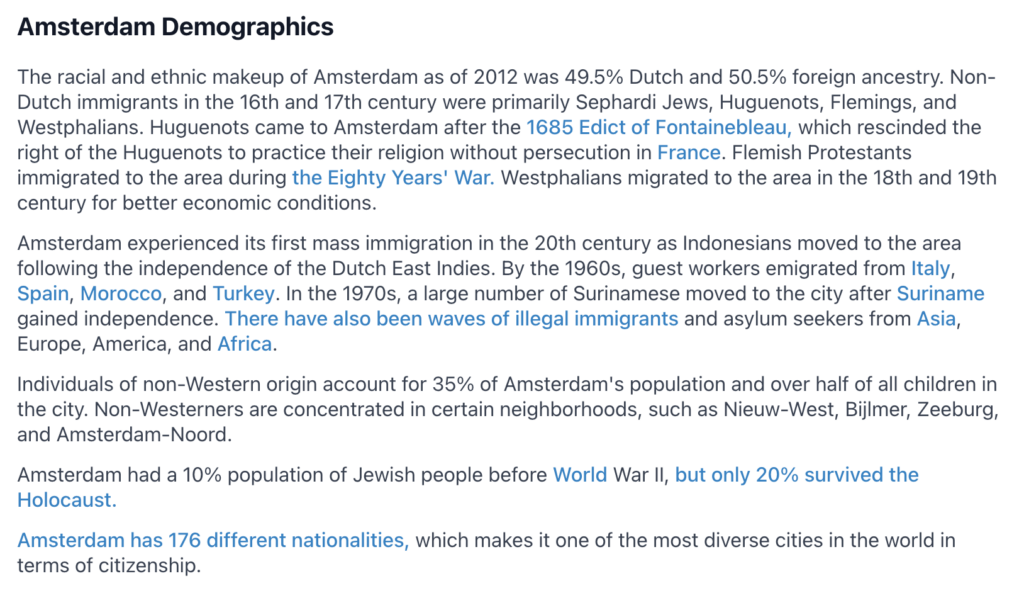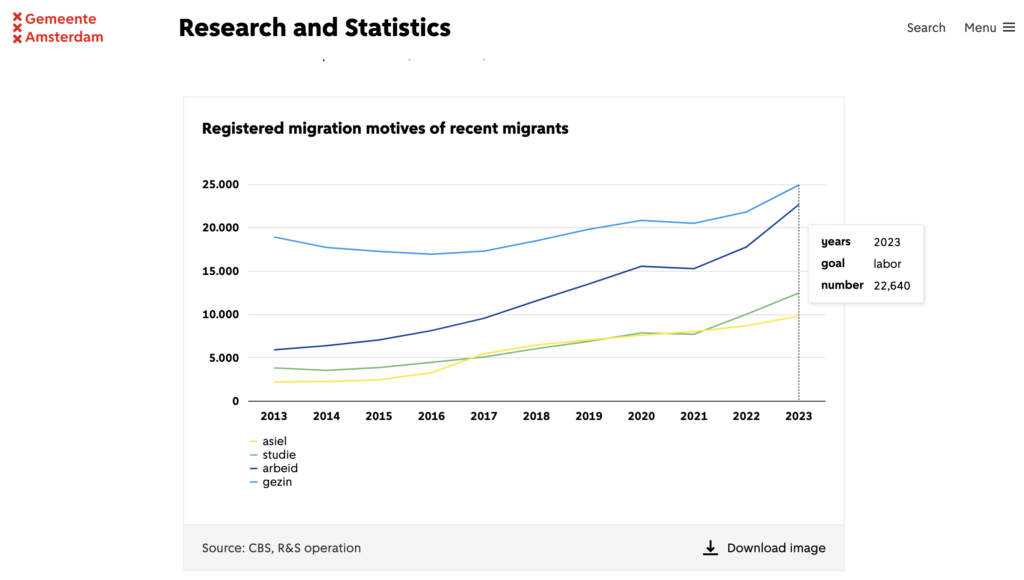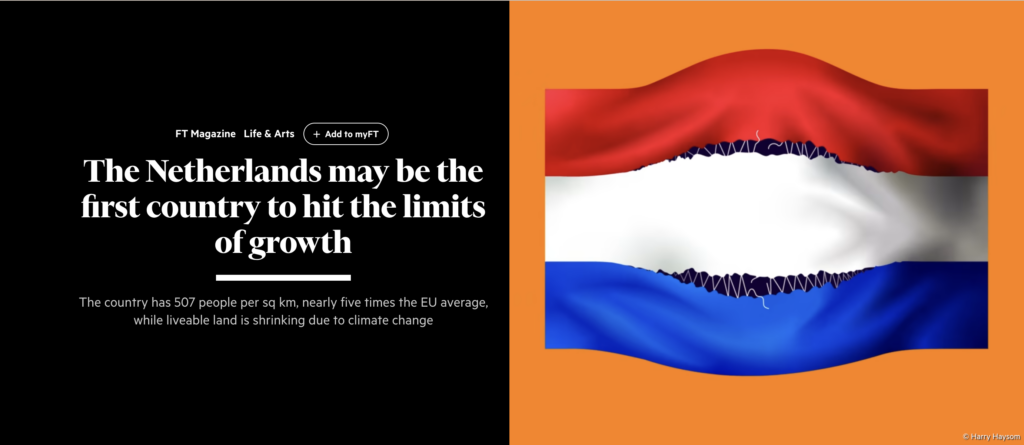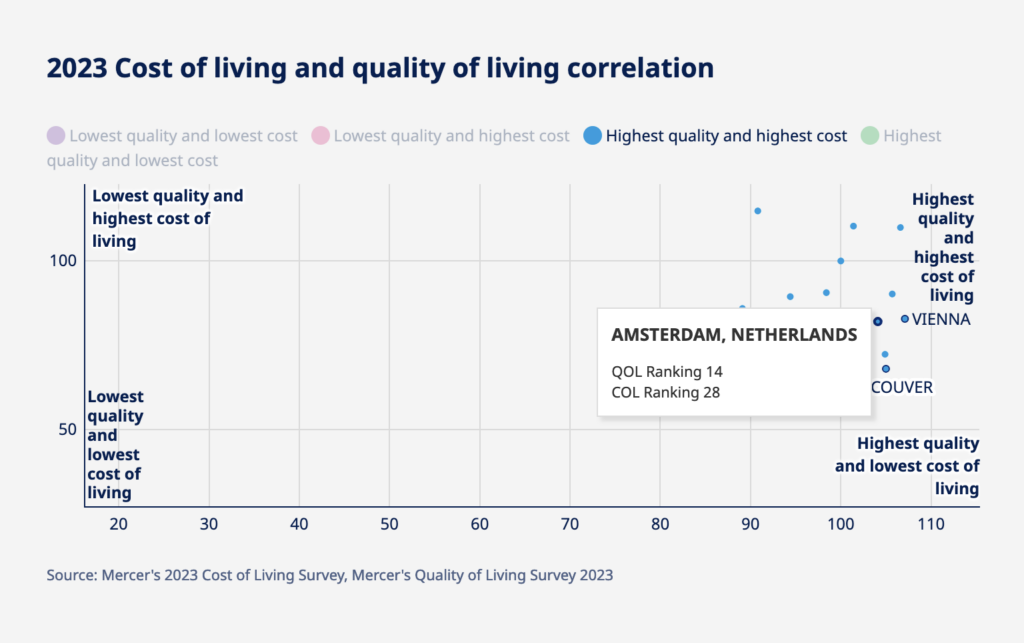If you want to listen directly the Podcast generated using my article with Notebook LM, go for it:
More than two years have gone since I moved to Amsterdam and the time has come to share with those at a crossroads in their career, seeking inspiration or a fresh perspective what “Living in Amsterdam” means to me.

In this article, I will explore:
- Relocation bonuses: Insights into financial support offered by employers to ease the move to the Netherlands.
- The 30% tax ruling: A breakdown of this expat tax benefit, its history, recent changes, and ongoing debates.
- Amsterdam’s housing market: Challenges of finding accommodation, overbidding, and the impact of high demand.
- Personal challenges and first impression: Lessons learned and quick tips.
Step 0: The relocation process
I often hear similar stories from people going through the same thing even before moving to the Netherlands.
A lot of people are part of the expat community like me because they’re offered a new job or a promotion from a company based in this country.
These organisations, particularly in sectors like tech, finance, healthcare and public institutions, are on the lookout for highly skilled professionals to fill roles that will help boost productivity.

In my case, I was really lucky because the reasons behind my move lined up perfectly with the data shared by Amsterdam’s municipal office this year (source).

In 2022, I was splitting my time between Italy and Spain when the company I worked for as an Account Executive offered me an exciting opportunity to relocate to Amsterdam for a full-time position as a Tech Recruiter.
I was happy to move here in June 2022!
The package I received was really generous too. It included a permanent contract and what’s commonly referred to as a relocation bonus: a lump sum (post-tax) typically paid with the first salary.
Just a heads-up, this bonus often comes with conditions, such as a minimum period of employment to respect, and could be subject to a partial or full terms negotiation.
It’s really important to look carefully at any clauses in your contract before signing and remember that the gross amount listed is subject to tax. Lots of friends who moved here also got temporary housing support as part of their relocation package.
Later, in Step 3, I’ll explain why it’s so tricky to find a place to live in Amsterdam.
If you’re planning your move, I found this relocation checklist from the Dutch government, which I think you’ll find really useful.
Step 1: The 30% Tax Ruling
This is one of the most discussed topics in recent years, and it’s easy to see why! It’s a crucial tool for companies looking to attract highly skilled professionals to the Netherlands.
Previously, this lovely tax exemption applied for up to ten years. However, we have to say that recent policy changes have unfortunately limited its duration to five years, and there are also stricter criteria. It’s becoming more and more common for me to hear people say that these incentives are to blame for the rising cost of living in Amsterdam and not only.
According to Mynta Law firm article:
“The 30% ruling was introduced under the Dutch Wage Tax Act of 1964 to compensate expats for extraterritorial expenses incurred when moving to the Netherlands. Up to 30% of their gross salary can be exempt from tax for a maximum of five years. While nationality isn’t a factor, returning Dutch citizens face stricter conditions to qualify.”
So, what’s changing?
Just to give you a heads-up, as of 2024, there’s a cap of €233,000 on the tax exemption. Also, the benefits reduce every 20 months within the five-year limit. To make sure everyone’s still getting the help they need, the government has also introduced stricter salary thresholds to align with inflation.
If you want to know more, Expatax have put together a great article that explains all the legislative changes in detail: the 30% ruling in 2024.
What do I think about it all?
I know this is still a bit of a hot topic, and I totally get why! This remains a polarising matter too. Some criticise it for reducing tax contributions for a selected number of people that were just lucky to meet the criteria required, while others argue it enriches the Netherlands by fostering diversity and boosting human capital.
I leave it up to you, once you understand the topic in its essence, to share your informed opinion with me.
Step 2: Amsterdam’s housing market
Housing in Amsterdam is a widely discussed topic across all media platforms, as high demand and limited supply continue to drive up prices.
One of the quirks I’ve come across is overbidding – not only when buying property, but also happening within the renting negotiation phases & selections. Landlords evaluate applications based on employment contracts, annual salaries and financial assets.
For a detailed analysis, I recommend this Financial Times article from 2022 and the detailed insights shared by Global Property Guide.

Certainly, among the most enjoyable and unexpected discoveries I came across once I moved to this country is that of overbidding.

This is not exclusive to the real estate market. It also applies to the rental market.
I have experienced this on more than one occasion over the past couple of years. My requests to view or rent a house have been scrutinised based on my employment contract, annual salary, employment type and current liquidity and investments.
This is how it works. There’s nothing to be surprised about anymore.
Step 3: challenges and first impression
We have now reached the crux of the matter. We are delving deeper into the heart of the daily dynamics and the events that are conditioning our perception of the new reality in which we have chosen to live.
As soon as you move here, you notice the exceptional quality of life that is frequently discussed in reports, analyses, and articles. These publications consistently highlight which cities (often European capitals) have the best standards for living a fulfilling life.
It is therefore unsurprising that Amsterdam is in 14th place in the ranking made by Mercer on the Quality of Living Ranking.

In addition to the 7 European countries in the top 10, other notable cities with a high quality of living include Oslo, Norway (24th), Stockholm, Sweden (26th), Paris, France (32nd), Helsinki, Finland (34th), and Dublin, Ireland (42nd).
While quality indicators like healthcare, safety, and education are measurable, personal perceptions often hinge on subjective factors like climate or cuisine.
I have often made comparisons with friends and former colleagues who live in other latitudes in situations quite different from my own. Without hesitation, I can say that the impression is always the same: living in capital cities with such high standards is objectively indisputable.
It is our subjective nuances that change our perception of living in countries other than the one we were born in. In this context, friends’ evaluations do not take into account elements that research companies may include or not among their parameters.
These nuances highlight the beauty and challenge of adapting to new environments, where every choice adds a unique layer to our journey.
At the end, I consider living in Amsterdam so far an undeniably enriching experience.
In my upcoming article, I’ll delve deeper into critical aspects of the Dutch experience: the work-life balance, navigating career opportunities in international companies, and dealing with unexpected challenges like layoffs—with tips on how legal professionals can support you.
Don’t miss it—these insights could redefine your approach to work and life abroad!